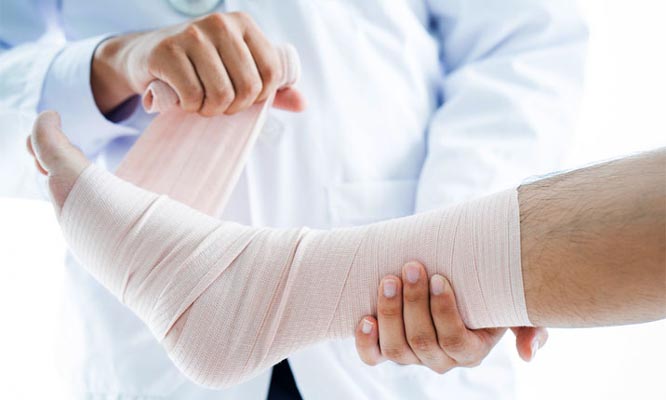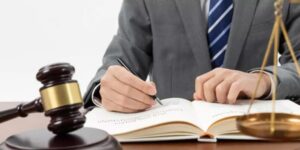
Accidents happen, and one of the most common types is the slip and fall accident. While they may seem minor, they can lead to significant injuries and legal implications. In this article, we will delve into the intricacies of slip and fall incidents, what constitutes them, and the importance of reporting. We will also explore the immediate actions to take after a slip and fall, including ensuring personal safety and gathering crucial evidence. Additionally, we will discuss reporting the incident to the property owner or manager, seeking prompt medical care, and documenting injuries and medical records. Legal considerations, such as consulting with an attorney and understanding the statute of limitations, will also be covered. Lastly, we will highlight the importance of building a strong personal injury claim by collecting witness statements and gathering additional evidence.
What Constitutes a Slip and Fall Accident?
Before we dive into the actions to take after a slip and fall, it’s essential to understand what constitutes such an accident. A slip and fall accident occurs when someone loses their footing due to hazardous conditions on the premises and subsequently falls, resulting in injuries. These accidents can be caused by various factors, including:
- Wet or slippery floors
- Uneven surfaces
- Poorly maintained walkways
- Inadequate lighting
- Debris or obstacles
Understanding these factors can help individuals recognize when they have experienced a slip and fall accident, potentially leading to injuries that warrant further action.
The Importance of Reporting
Reporting a slip and fall incident is a crucial step in protecting your rights and ensuring that you receive the necessary support and compensation. Many victims tend to downplay their injuries or feel embarrassed about the accident, but reporting the incident promptly can significantly impact your ability to seek compensation for your injuries.
It’s important to remember that property owners or managers have a responsibility to maintain a safe environment for visitors. If their negligence led to the hazardous conditions that caused your slip and fall, you have a right to seek compensation for your injuries and related expenses.
Our findings show that: Those who report slip and fall accidents early are more likely to receive fair compensation for their injuries. Reporting not only establishes a record of the incident but also allows property owners or managers to address and rectify the hazard promptly.
Immediate Actions After a Slip and Fall
Now that we understand the importance of reporting, let’s explore the immediate actions you should take after a slip and fall accident to protect your rights and well-being.
Ensuring Personal Safety
Your safety should always be the top priority after a slip and fall accident. Here are the steps to follow to ensure your well-being:
- Check for injuries: Assess yourself for any injuries. If you or someone else is seriously hurt, call for immediate medical assistance.
- Move to a safe location: If possible and without further endangering yourself, move to a safe area to avoid additional harm. This might involve getting off a wet floor or away from any other hazardous conditions.
- Notify someone: If you cannot move due to injuries or the severity of the situation, notify someone nearby or call for help. Prompt assistance is vital in emergencies.
Gathering Evidence
Gathering evidence at the accident scene is crucial for building a strong case and proving liability. Here’s what you should do:
- Take photos: Use your smartphone or any available camera to capture images of the hazardous condition that caused your fall. These photos will serve as crucial evidence later.
- Identify witnesses: If there were witnesses to your slip and fall, collect their contact information. Witnesses can provide valuable testimonies to support your claim.
- Record details: Make note of the date, time, and location of the incident. This information will help establish the circumstances surrounding your accident.
Reporting the Incident
After ensuring your safety and gathering evidence, the next step is to report the slip and fall incident to the relevant parties. This includes notifying the property owner or manager and filing an incident report.
Notifying the Property Owner or Manager
Informing the property owner or manager about the slip and fall incident is essential. This step can lead to immediate action to rectify the hazard and prevent further accidents. When notifying them, be sure to:
- Be clear and concise: Explain what happened and the hazardous condition that caused your fall.
- Request a copy: Ask for a copy of the incident report if they have one. This can be useful for your records and any potential legal proceedings.
Filing an Incident Report
In some cases, the property owner or manager may have an incident report form that you can complete. If available, ensure you provide accurate and detailed information about the incident. If there isn’t a formal report, create your own document with the following information:
- Your name and contact information
- Date, time, and location of the incident
- Description of the hazardous condition
- Any witnesses and their contact details
- Photos of the hazard and your injuries
Filing an incident report creates an official record of the slip and fall, which can be crucial when pursuing a personal injury claim.
Medical Attention and Documentation
Once you have reported the incident and taken initial actions, the next priority is seeking prompt medical care and documenting your injuries and medical records.
Seeking Prompt Medical Care
After a slip and fall, it’s essential to seek medical attention, even if your injuries seem minor at first. Some injuries may not manifest immediately, and a medical professional can provide an accurate assessment of your condition. Prompt medical care is vital for several reasons:
- Ensures your injuries are properly diagnosed and treated.
- Creates a medical record linking your injuries to the slip and fall incident.
- Demonstrates that you took reasonable steps to address your injuries.
Delaying or forgoing medical care can jeopardize your health and your potential personal injury claim.
Documenting Injuries and Medical Records
To strengthen your case, it’s essential to document your injuries and maintain detailed medical records:
- Photograph injuries: Take clear photos of your injuries as they progress. These photos serve as visual evidence of your condition.
- Keep medical records: Retain all medical bills, reports, and records related to your treatment. These documents establish a direct link between your injuries and the slip and fall incident.
Accurate documentation is critical when seeking compensation for medical expenses and pain and suffering as part of your personal injury claim.
Legal Considerations
As you navigate the aftermath of a slip and fall accident, several legal considerations come into play. Consulting with an attorney and understanding the statute of limitations are key factors in protecting your rights.
Consulting with an Attorney
Seeking legal representation is often advisable in slip and fall cases, especially if your injuries are severe or if liability is disputed. An experienced personal injury attorney, such as those at Union Law Firm, can provide valuable assistance by:
- Assessing the strength of your case.
- Advising you on your legal rights and options.
- Negotiating with insurance companies on your behalf.
- Representing you in court if necessary.
Union Law Firm specializes in slip and fall cases, offering the expertise needed to navigate the legal complexities involved.
Statute of Limitations
It’s important to be aware of the statute of limitations for personal injury claims in your jurisdiction. This statute sets a deadline for filing a lawsuit after a slip and fall accident. If you fail to file within the specified timeframe, you may lose your right to seek compensation.
The statute of limitations varies by location, so consulting with an attorney is essential to ensure you don’t miss this critical deadline.
Building a Strong Personal Injury Claim
To maximize your chances of a successful personal injury claim, you’ll need to build a strong case. This involves collecting witness statements and gathering additional evidence to support your claim.
Collecting Witness Statements
Witnesses can provide valuable accounts of the slip and fall incident. Contact the individuals who witnessed your fall and ask them to provide statements describing what they saw. Their testimonies can corroborate your version of events and strengthen your case.
Gathering Additional Evidence
In addition to witness statements, consider gathering the following types of evidence:
- Surveillance footage: If the incident occurred in a public place or a property with surveillance cameras, request access to the footage that may have captured the fall.
- Maintenance records: If the hazardous condition resulted from negligent maintenance, obtaining records of maintenance or repair work can support your claim.
- Expert opinions: In some cases, consulting experts, such as engineers or safety professionals, can provide insights into the hazardous conditions and liability.
By collecting this evidence, you can bolster your personal injury claim and increase your chances of receiving fair compensation for your injuries and related expenses.
Reporting a slip and fall incident and taking the appropriate steps afterward are vital for protecting your rights and ensuring you receive the support and compensation you deserve. Understanding what constitutes a slip and fall accident, the importance of reporting, and the immediate actions to take can make a significant difference in the outcome of your case. Seeking medical attention, documenting injuries, and considering the legal aspects, including consulting with an attorney and adhering to the statute of limitations, are critical steps in the process. Finally, building a strong personal injury claim by collecting witness statements and additional evidence can help you secure the compensation needed to recover from your slip and fall accident. If you find yourself in such a situation, remember to act promptly and diligently to protect your rights and well-being.




